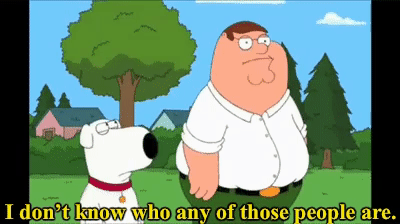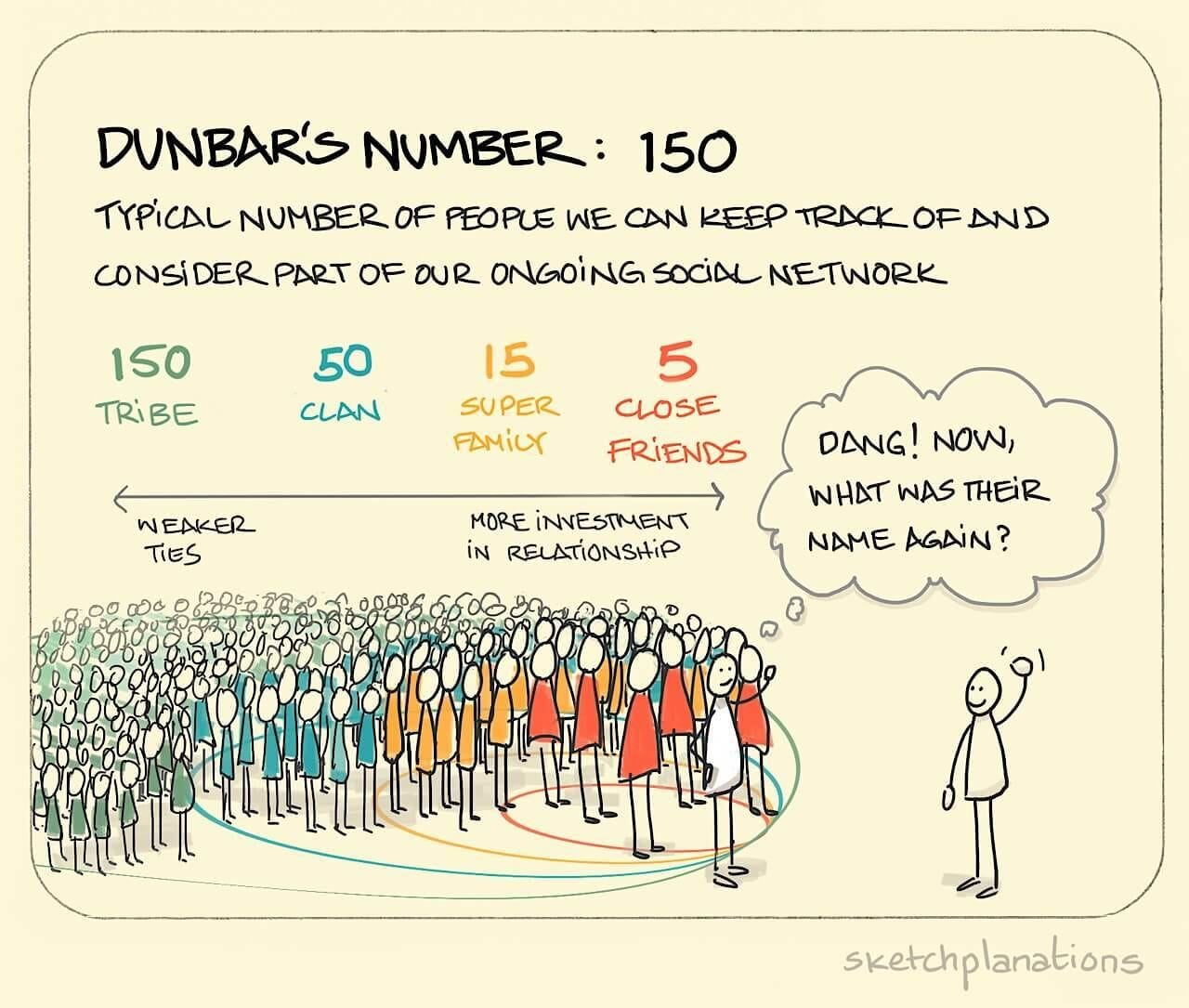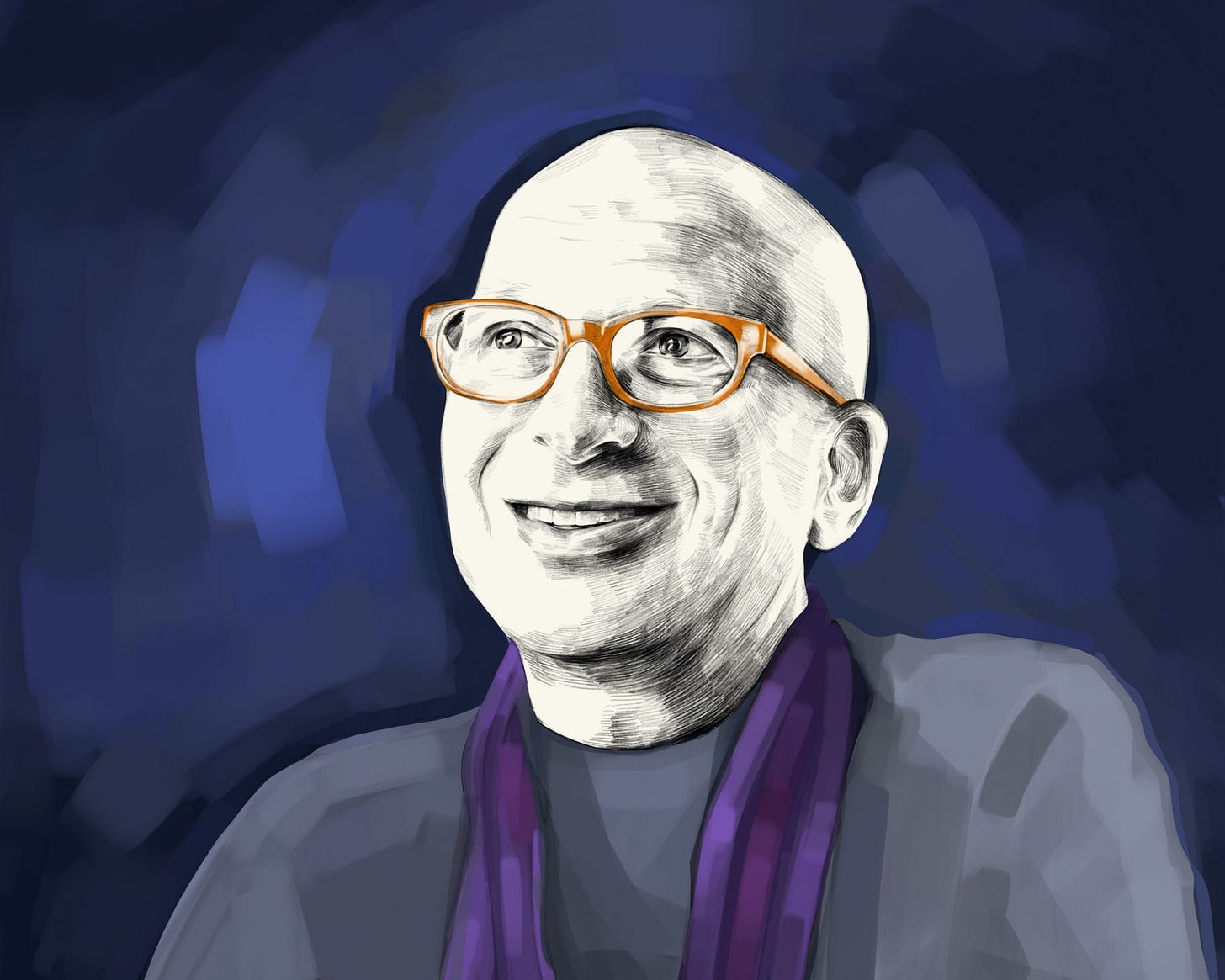Hi there,
Last week, we realized that our social network can be bigger than we thought. That we can build and maintain 150 social relationships outside our inner circle. More importantly, we saw the importance of our tribe in influencing our interests, attitudes, behaviours, and level of scenius.
This week we will look into the consequences of this cognitive social limit – its broader implications on our ethics – and more importantly why we should practice localism in our social network.
Nassim Taleb, in his book Skin in the Game: Hidden Asymmetries in Daily Life captured it perfectly:
People tend to be virtuous in small groups, he says; but, once the groups get large, ethical rules lose their force with respect to the group as a whole although not within the subgroups. This can and does lead to inter-subgroup hostility and bad behavior. People do things to members of other clans that they wouldn’t do to clanspeople. Because virtue doesn’t scale, you can’t just declare everybody to be one huge group and have a nirvana of good behavior and trust.
Point is “Ethics don’t scale”
Here we go!!
Localism
At the height of uncertainty around COVID-19, and in obedience to the WHO recommended safety protocols, we strictly adhered to the guidelines of washing our hands, wearing a mask, maintaining social distance. But up to a certain scale.
Initially, when we thought contracting the virus meant ending up in a body bag, we confined ourselves to our homes. We socially distanced up to the house-hold level. Anyone outside, we were having none of it.
[But] A man must eat a peck of salt with his friend before he knows him – Miguel de Cervantes.
Soon enough we started socializing a little bit in our inner circle. BFFs. Close friends. Close family members. We observed all safety measures up to the Friends and Family Level.
[After all] no man is an island.
No doubt WFH takes a toll. It’s a different beast – and soon enough we started empathizing with stay-home freelance workers. It’s a whole different ball game with no excitement. And so, one by one we started seeing more friends. Going to the office once in a while to have a brainstorm with our workmates.
Once in open space, just like there is a mad man in every market, there are those people who never understand you’re “isolating” at a workmate level not at a colleague’s level.
They say time heals and makes us forget but what we shared will never be erased – Shannon L. Ader.
As societal stigmatization decreases, and the herd questions the faceless deaths,

we become ambivalent in the acquaintance level.
[I mean], a friend of a friend is a friend of mine.
And with relaxed laws, masks off up to street level.
Scale Bound Network
Whenever we think about our network it is important to think about the scale. Technically, there can be scale-free social networks in platforms such as Facebook and Twitter. But socially, our relationships are scale bound and confided in what is referred to as the Monkeysphere (tribe).

The Monkeysphere basically says – even if you’re a kind person, at some point, you would be willing to screw someone outside your Monkeysphere over in order to either favour yourself or someone inside the sphere.
Most of us do not have room in our Monkeyspehere to worry or concern ourselves beyond the “150 nth” person. Our mental hardware reaches a point where the “150 nth + 1” stops being a person.
It’s one reason why nationalism on its own does not work. It’s the reason why we saw the need for devolution. It’s the reason why our sister’s death would affect us more than 100,000 people who die abroad following a natural disaster. It’s the point behind Kevin Federline’s, “One death is a tragedy. One million deaths is a statistic.” The closer we are to the Monkeysphere the more it means to us.
Localize our social network
Localism, at the social level, is where we remain oriented towards expanding our network, but with the philosophy of having strong roots at the tribal level.
In a world where networking is everything and given the bad things that happen to people who fall outside the Monkeysphere of the movers and shakers, you would be hard-pressed if you took a wholesome rather than a fractal approach.
Society dynamically self-organizes into infinite interrelated groups of intermediate scales, for example, I, my family, my neighbors, my school peers, my university friends, my workmates, my community club, my clients, my city, my county, my country.
Someone you see at a community club who has ignored your email would feel embarrassed for his lack of response – and more responsibility, especially where social capital has accrued.
Past the tribe scale, decisions have a faceless value, and emotions are replaced with data, and embarrassment curtailed by bureaucracy.
In the words of Mark Blyth, “Stalin could not have existed in a municipality.”
Prioritize the local, the tribe, and build up from the bottom.✓
Best Stuff I Read
Why do we cross-use, friendship, and acquaintanceship?
Maria Popova, the most prolific reader and writer I know behind Brain Pickings, found herself concerned with the commodification of the word “friend” in our culture.
We call “friends” peers we barely know beyond the shallow roots of the professional connection, we mistake mere mutual admiration for friendship, we name-drop as “friends” acquaintances associating with whom we feel reflects favorably on us in the eyes of others
We are reminded that “Friendship like philosophy, like art, like the universe itself … has no survival value; rather it is one of those things which give value to survival.”
Complement with
+ The Two Pillars of Friendship. – “A friend is a person with who I may be sincere.”
2. “Risky”
Ten minutes into the conversation, after everyone had checked in, the organizer of the Zoom said they’d all recently met in person, gathering in Chicago a few weeks ago.
I was confused.
“A few weeks ago,” I said into my greasy computer screen, “we were still deep in COVID.”
“We quarantined for two weeks at home,” one of the women said. “Then we all went to Chicago and stayed with the organizer in the middle of the pandemic.”
“Wait, wait, wait,” I said. “Y’all risked it all for a book club?”
The seven women looked at each other and filled that space with full-bodied laughter, wet eyes, and smiles that rocked back, back, forth, and forth.
They risked it all for the radical possibilities of friendships forged in books.
I understood.
Listening To

Tim Ferriss’s podcast with Seth Godin on The Game of Life, The Value of Hacks, and Overcoming Anxiety.